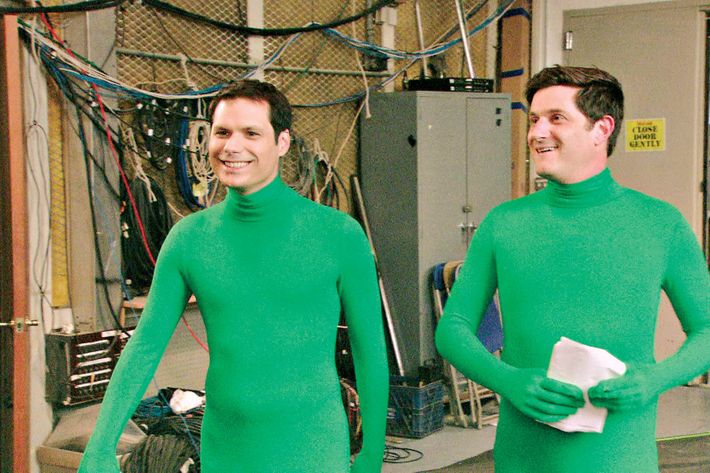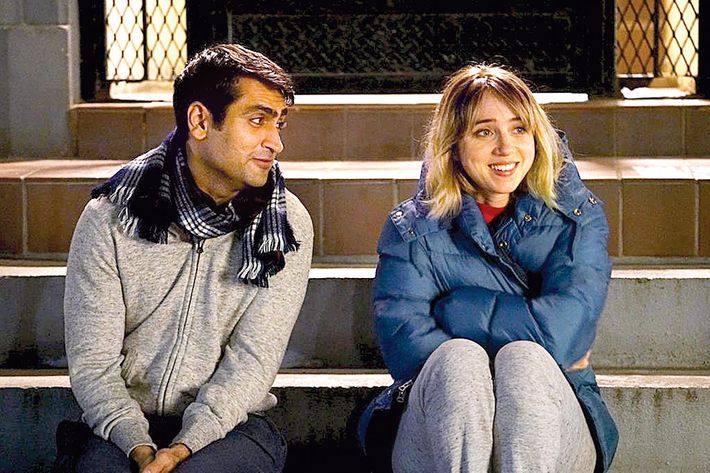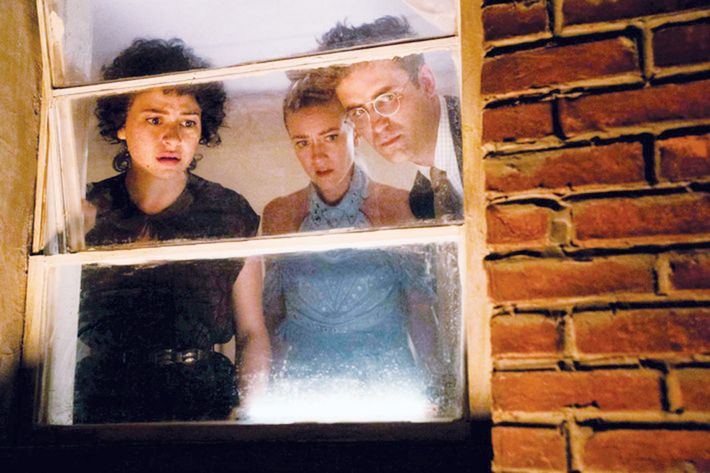
In 2017, comedian Michael Showalter — founding member of the sketch troupe the State, regular collaborator with David Wain and Michael Ian Black — pulled off a remarkable trifecta: He directed the widely embraced film The Big Sick; produced a second season of the acclaimed and unclassifiable TBS hit Search Party; and shepherded and starred in another installment of the most unlikely comedy franchise in history, Wet Hot American Summer: Ten Years Later, on Netflix. In fact, Showalter seems to have had the best coming-out year that (almost) nobody noticed. Here’s how his breakthrough happened.
1. Write, Direct, and Star in a Movie That Leads Nowhere

In 2005, Showalter made his directorial debut with The Baxter, a romantic comedy co-starring Michelle Williams. Though he was best known for projects like the State, his aspirations had shifted to directing — but the rest of the industry wasn’t quite there yet. “I had hoped The Baxter might lead to other things, and it just didn’t,” he says now. “It’s almost like it was a false start. That was a lot of what my New York years were like: I would do something, but it wouldn’t seem to lead to the next thing; it would just seem to exist of itself.”
2. Think About Quitting Acting

By the time he’d finished his next major project, the 2009 Comedy Central series Michael & Michael Have Issues with Michael Ian Black, a fundamental change had taken place for Showalter. “I really, palpably felt that I did not want to be an actor anymore. It wasn’t happening for me, but it also wasn’t … I’m not an actor,” he says. “This is an argument I have with people. ‘Yes you are, you’re so great!’ I’m telling you: I’m not an actor.”
3. Teach. Write. Cast Sally Field.

So how does a nonactor transition out of acting? For Showalter, it involved a stint at NYU teaching screenwriting, and a gig writing for the Rebel Wilson ABC sitcom Super Fun Night, for which he moved to L.A. The most critical step, though, was getting back in the directing chair and casting Sally Field in the 2015 romantic comedy Hello, My Name Is Doris — which became a specialty box-office smash, making nearly $15 million on a $1 million budget.
4. Give Kumail Nanjiani a Break

Showalter gave Nanjiani, a writer on Michael & Michael, his first onscreen acting gig. So when Nanjiani was developing The Big Sick with his wife, Emily V. Gordon, they tapped Showalter to collaborate.
5. Be Receptive to Good Ideas — Even From Your Students

Meanwhile, Search Party, Showalter’s other current hit, was the collective idea of Showalter and two of his writing students at NYU, Sarah-Violet Bliss and Charles Rogers. Together, the three conceived of a story in which an aimless 20-something woman in New York becomes obsessed with a college acquaintance who’s gone missing.
6. Look Back and See You Had a Pretty Great 2017, Which Means You Can …

The Big Sick’s July release coincided with the shooting of Search Party season two, which meant Showalter spent five weeks in a blur. As it stands, there are no plans for any more Netflix episodes of Wet Hot Summer — which would mean the retirement of his last onscreen role. He’s not leaving revivals behind, however — among other projects, he’s producing a show called Revival, a riff on the omnipresent TV revivals currently filling network slates, which is now in development at Fox.
7. … Say Goodbye to Acting for Good

“Actors put themselves through emotions and experiences we all have, but they put themselves through it to the extreme,” he says. “I am in awe of great actors. Now I get to be with them in those moments, yet feel no sense of, ‘Dammit, I wish that was me.’ ”
*This article appears in the December 25, 2017, issue of New York Magazine.




